It is a great privilege to work with some of the world’s leading academics and specialists in early childhood and primary education, who bring new perspectives to inform and challenge our thinking about pedagogy and practice. They support our work by leading national conferences and high level seminars which deepen our understanding of young children’s learning and development.
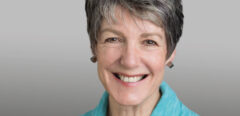
Julie Fisher
National Consultant, Visiting Professor at Oxford Brookes University.
Julie is an independent Early Years Adviser and Visiting Professor of Early Childhood Education at Oxford Brookes University. She has been a Headteacher, Lecturer in Early Childhood Education at the University of Reading and Early Years Adviser in Oxfordshire. Julie is engaged continuously in action research with children and practitioners and is the author of a number of articles as well as books including Starting from the Child, The Foundations of Learning and Moving On to Key Stage 1: Improving Transition from the Early Years Foundation Stage.

Professor dr. Ferre Laevers
Director, Research Centre for Experiential Education, University of Leuven, Belgium.
Professor dr. Ferre Laevers is the Director of the Research Centre for Experiential Education, Leuven University, Belgium. He is considered the founder of Experiential Education when, in the 1960s as a doctoral student in educational sciences, and heavily influence by the work of Carl Rogers and Jean Piaget, he started several ground breaking projects into the study of deep level learning. His recent work focused on Well-being & Involvement has led to the study and application of a quality framework for the assessment and improvement of early years practice.
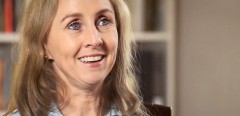
Kath Murdoch
International Education Consultant, University of Melbourne, Australia.
Kath Murdoch is an experienced teacher, author, university lecturer and popular consultant who works in schools throughout the world. She is widely respected for her work in the field of inquiry-based learning in which she has taught, researched and published for three decades. The methodologies in which Kath specialises are now central to many curriculum frameworks – including the popular International Baccalaureate PYP program. Kath maintains a strong commitment to supporting teachers and her presentations are always practical and directly applicable to the classroom.
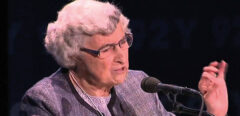
Dr. Lilian Katz
Professor Emerita of Early Childhood Education, University of Illinois, Urbana-Champaign.
For 33 years, Dr. Lilian Katz served as Director of the ERIC Clearinghouse on Elementary and Early Childhood Education and as President of the National Association for the Education of Young Children. Born and raised in the UK, Lilian has lectured in over 55 different countries, is the Editor of the early childhood journal Early Childhood Research & Practice and is currently chair of the editorial board of the International Journal of the Early Years published in the United Kingdom.
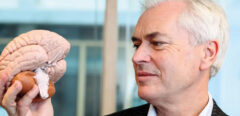
Ian Robertson
Professor of Psychology, Trinity College, Dublin.
Ian Robertson holds the Chair in Psychology at Trinity College Dublin and his research focuses on behaviour change and brain plasticity – the brain’s ability to adapt and change throughout adulthood. His latest book, The Winner Effect: The Science of Success and How to Use it draws on neuroscience and developmental psychology to answer the question: What makes a winner? Why do some people succeed and others fail? A former science writer for the London Times, Ian has reached a broad audience both in academic and popular scientific circles with more than 200 articles and a Ph.D. in neuropsychology from the University of London.
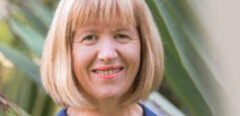
Wendy Lee
Director of the Educational Leadership Project, New Zealand.
For more than 40 years, Wendy has been involved in the Early Childhood Education field as a teacher, tutor, lecturer, manager, professional development facilitator and researcher. More recently she has collaborated on four research projects in early years settings with Margaret Carr, with whom she co-directed the National Early Childhood Assessment and Learning Exemplar Project and co-authored the book Learning Stories: Constructing Learner Identities in Early Education.
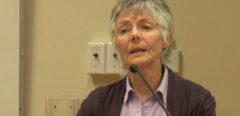
Margaret Carr
Professor of Education, University of Waikato, New Zealand.
With a special focus on early childhood education, Margaret Carr has published widely on assessment as narrative documentation in early childhood and her book Assessment in Early Childhood Settings: Learning Stories has been translated into a number of languages worldwide. More recently, Margaret co-authored the book Learning Stories: Constructing Learner Identities in Early Education with Wendy Lee. She was also the co-director of the Early Childhood Curriculum Development Project, which developed the national early childhood curriculum for New Zealand.
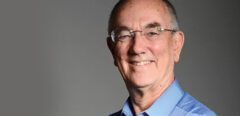
Guy Claxton
Professor of the Learning Sciences, University of Winchester.
Guy Claxton is a world renowned authority on expandable intelligence; what it is, why it matters, and how to grow it. He is the author of many books including his best-seller What’s the Point of School? which was highly praised by Professor Howard Gardner, Sir Ken Robinson and Baroness Susan Greenfield – and Stanford Professor Carol Dweck called his 2012 book, The Learning Powered School: Pioneering 21st Century Education, ‘superb, innovative and important’.
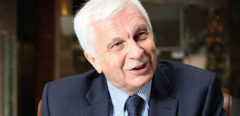
Mick Waters
Professor of Education, Wolverhampton University.
Professor Mick Waters is best known as former Director of the Curriculum at the QCA (Qualifications and Curriculum Authority) where he gained an heroic reputation amongst teachers whilst both consulting, advising and explaining the new curriculum, making it relevant and meaningful for professionals working directly with children and young people. A former Head Teacher, Mick is passionate about the role of education in improving life chances for pupils and is still very much involved with teaching and learning. He is the President of the Curriculum Foundation and a charismatic speaker who pushes the boundaries to improve learning and make schools better. His book Thinking Allowed, which was published in 2013, explains his beliefs and sheds light on progress and problems in the school system.
